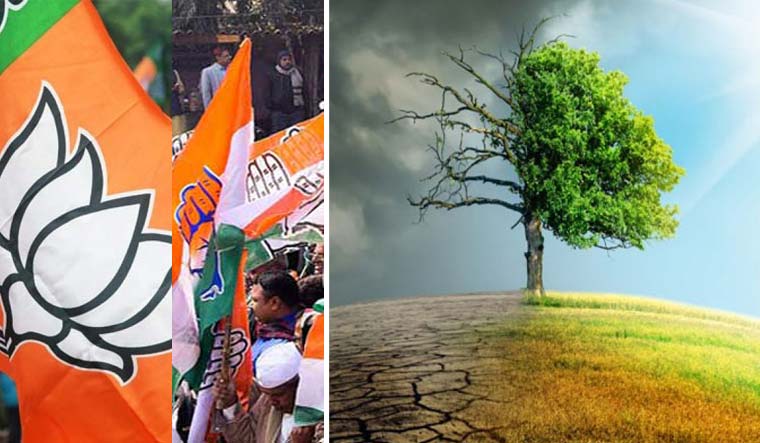India witnessed extreme weather events in 2023. Chennai was deluged due to cyclone Michaung that damaged life and livelihood. The Yamuna in Delhi broke 44 years’ record submerging parts of the national capital. Himachal Pradesh saw devastation leaving roads, highways, houses and shops perished. The spatial and temporal variations in rainfall across the country are posing enormous challenges every year. Early this year, the World Meteorological Organisation, a United Nations agency, confirmed that 2023 was the hottest year on record in at least 173 years. Global average temperatures breached the 1.5 degrees Celsius mark for the first time. WMO secretary-general, Celeste Saulo, admitted that “climate change is the biggest challenge faced by humanity”, predicting that 2024 could be even hotter.
Climate change, undoubtedly, has emerged as one of the most threatening phenomena adversely affecting people across the world, especially the vulnerable. Some researches show that issues such as unemployment, education, healthcare and economic growth are inextricably linked to climate change. Environmental issues, therefore, are increasingly capturing electoral interests. Political parties in India acknowledge the threat and the emotions attached to it and have begun entwining renewable energy goals, green targets and pollution-free discourses into their election manifestos. Environmental issues made it to party manifestos for the first time in 2019.
Dedicated sections on environment and climate change outlining “green” agendas have found space in the election manifestos of two main national parties – the Bharatiya Janta Party (BJP) and the Congress – ahead of the Lok Sabha elections this year. However, “neither engages with the implications of 2023 being the hottest year on record”, said Mritiunjoy Mohanty, Professor, Economics, IIM, Kolkata. “The demand for electricity outstripped supply. If rising temperatures increased demand, it was met by fossil fuels because renewable supply saw a shortfall due to plummeting of hydroelectric power. This itself is a result of climate change. However, there is simply no engagement with this issue at all.”
Focusing on the Lifestyle for Environment (LiFE) concept proposed at the 26th United Nations Climate Change Conference of the Parties (CoP-26) in Glasgow in 2022, the BJP’s manifesto is predominantly an extension of the ongoing schemes in the environment, forests, water and energy sectors. The manifesto proposes to initiate a national e-waste management programme for its safe disposal. “We will use both traditional wisdom as well as modern practices to contribute to a healthier planet,” reads the BJP manifesto.
The Congress manifesto also falls short of coining good ideas while delineating plans to constitute an independent Enviornment Protection and Climate Change Authority, launch Green New Deal Investment Programme, set up Green Transition Fund of India and take 2008 National Action Plan on Climate Change to National Climate Resilient Development Mission among others. All are continuation of the existing policies in new forms.
Said Anjal Prakash, research director and adjunct associate professor, Bharti Institute of Public Policy, Indian School of Business, Hyderabad, “Both manifestos talk specifically about climate change and have a dedicated section. Both are good in manifesting what should be the road map to tackle the challenge of climate change.” However, a lot would depend on implementation. “The real issue is implementation, especially planning at the district level. It would have to be monitored how the parties deliver on these promises once in power.”
Jagdeep Chokkar, founder of Association for Democratic Reforms said that nothing happens by merely including these issues in the manifesto. “I do not think any government of any political party has shown any seriousness on environmental issues over the years. They just provide lip service but no action is taken.” “For instance, proper Environment Impact Assessment (EIA) of various projects is not done. The regulations have been changed to give clearances. There are multiple such examples,” he said.
“A much greater push towards renewables with a focus on a more diverse renewable portfolio with greater redundancy is required,” adds Professor Mohanty. “Besides, focused and honest discussions on energy efficiency, carbon sinks, coal phase out, adaptation and resilience is required to be spelled out clearly.”



